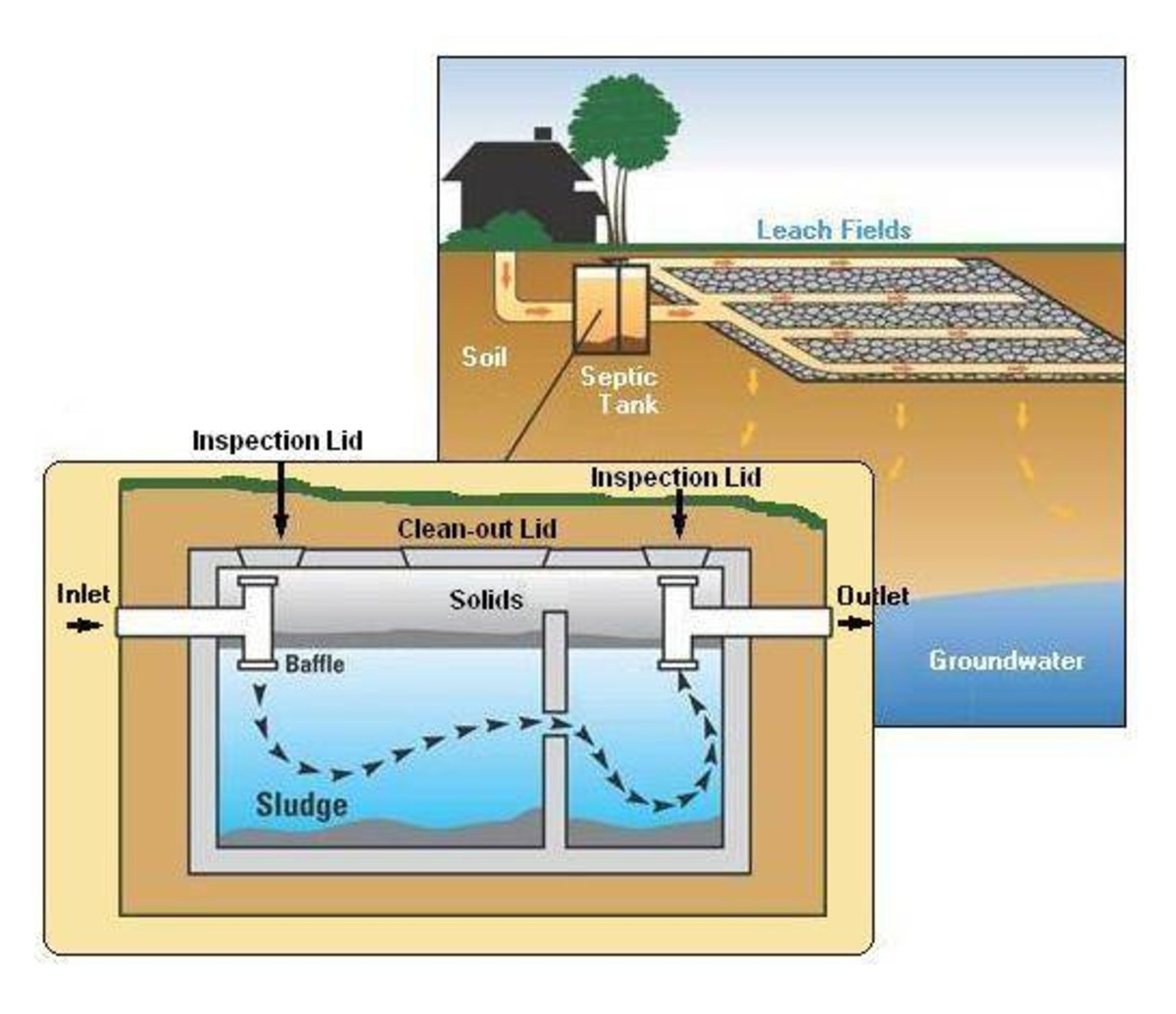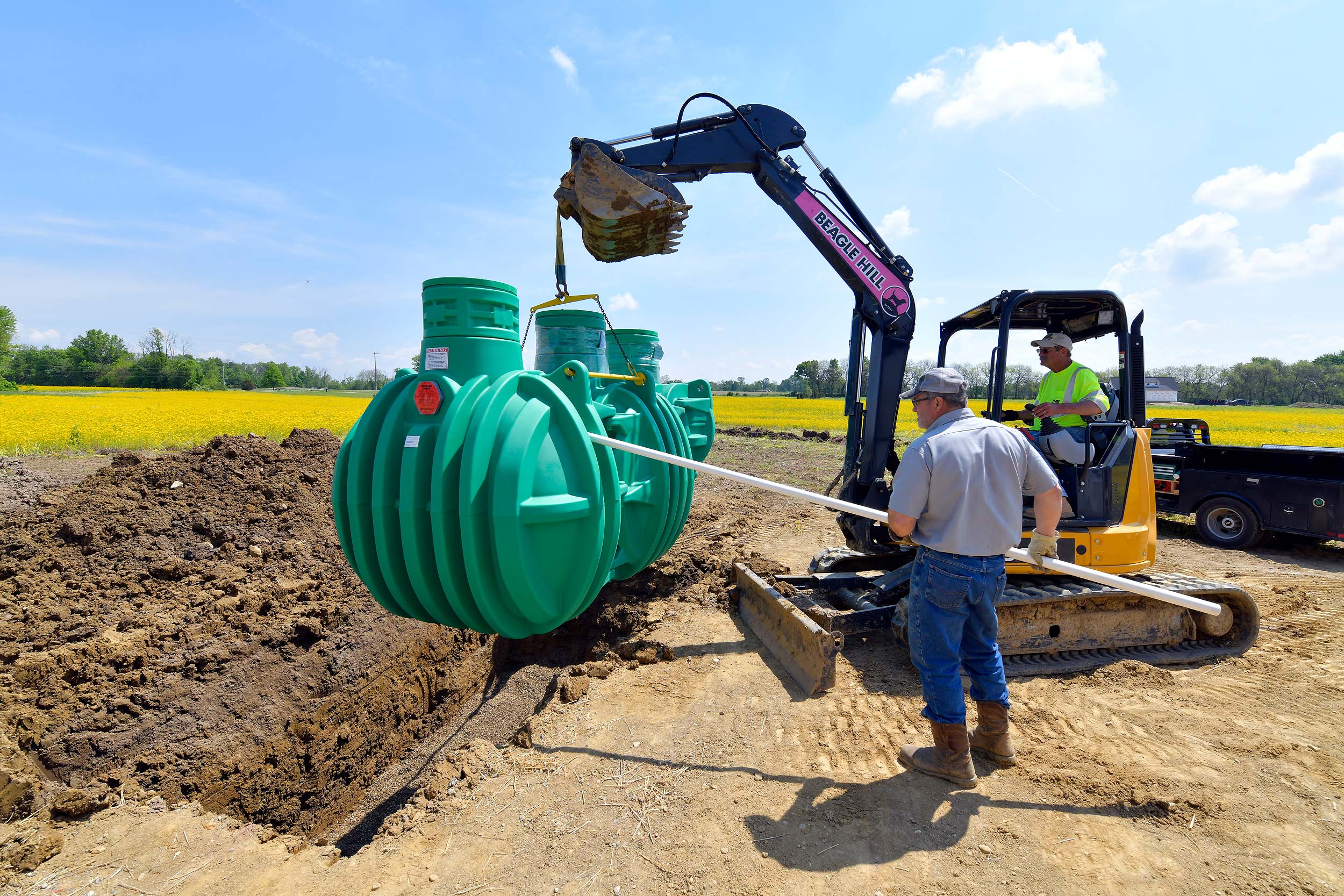Septic Trucks For Sale In Florida: A Comprehensive Guide pickup.truckstrend.com
Introduction: Pumping Up Prosperity in the Sunshine State
Florida, with its sprawling suburban landscapes, vibrant coastal communities, and a significant portion of its population relying on decentralized wastewater treatment systems, presents a unique and robust market for septic services. At the heart of this essential industry is the septic truck – a specialized vehicle designed to pump, transport, and dispose of liquid waste from septic tanks, grease traps, and other containment systems. More than just a utility vehicle, a septic truck is the backbone of any successful septic service business, representing a substantial investment and a critical tool for maintaining public health and environmental integrity across the Sunshine State.
Septic Trucks For Sale In Florida: A Comprehensive Guide
For entrepreneurs looking to enter the lucrative waste management sector, established businesses seeking to expand their fleet, or independent contractors aiming to upgrade their equipment, understanding the landscape of septic trucks for sale in Florida is paramount. This comprehensive guide will navigate the intricacies of acquiring these vital machines, from understanding market dynamics and vehicle types to practical purchasing advice and long-term operational considerations, ensuring you make an informed decision that drives your business forward.
Understanding the Septic Truck Market in Florida
Florida’s unique geographical and demographic characteristics heavily influence the demand for septic services and, consequently, septic trucks.
- High Reliance on Septic Systems: A significant portion of Florida, especially outside of major metropolitan centers, relies on individual septic systems due to lower population density, historical development patterns, and the cost-prohibitive nature of extending centralized sewer lines.
- Population Growth: Florida is one of the fastest-growing states in the U.S. This continuous influx of residents translates directly into increased housing units and, by extension, more septic systems requiring regular maintenance.
- Aging Infrastructure: Many existing septic systems in older communities are reaching the end of their lifespan, necessitating more frequent pumping and, eventually, replacement, further fueling demand for services.
- Environmental Regulations: Florida’s Department of Environmental Protection (DEP) and local county health departments enforce strict regulations regarding wastewater disposal, emphasizing the importance of properly maintained and pumped septic tanks to prevent groundwater contamination, especially given Florida’s high water table and sensitive ecosystems.
- Tourism & Commercial Needs: Beyond residential systems, Florida’s massive tourism industry generates significant demand for grease trap cleaning and wastewater management from restaurants, hotels, and theme parks, requiring specialized septic truck capabilities.

These factors create a consistently high demand for septic services, making the acquisition of a reliable septic truck a sound business decision for many.
Types of Septic Trucks Available in Florida
Septic trucks come in various configurations, each suited for different operational needs and budgets. Understanding these types is crucial for selecting the right vehicle for your business.

By Tank Material:
The material of the vacuum tank is a primary differentiator, impacting durability, weight, and cost.
- Carbon Steel: The most common and economical option. It’s robust and ideal for general septic waste. However, it’s susceptible to rust and corrosion over time, especially with acidic or corrosive materials like some grease trap waste. Regular internal coating maintenance is essential.
- Stainless Steel: Offers superior corrosion resistance, making it excellent for caustic or acidic waste, such as industrial byproducts or certain grease trap applications. It’s more durable and requires less maintenance against corrosion but comes at a significantly higher price point.
- Aluminum: Lighter than steel, aluminum tanks allow for higher payloads within legal weight limits, increasing efficiency by reducing the number of trips. They are resistant to rust but can be more prone to denting and are typically more expensive than carbon steel. Not ideal for highly corrosive materials.
- Fiberglass: Lightweight and highly resistant to corrosion, fiberglass tanks are a good option for specific, less abrasive waste types. They are less common for heavy-duty septic applications due to concerns about structural integrity under extreme pressure or impact compared to metal tanks.

By Tank Capacity:
Capacity dictates how much waste can be carried per trip, directly impacting efficiency and operational range.
- Small Capacity (500-1,500 gallons): Ideal for residential septic tank pumping, tight urban spaces, or as a secondary truck for quick jobs. Easier to maneuver and often requires a non-CDL driver.
- Medium Capacity (2,000-4,000 gallons): The most versatile and popular size for a wide range of residential and light commercial septic services. Balances payload capacity with maneuverability.
- Large Capacity (5,000+ gallons): Suited for high-volume commercial, industrial, or municipal applications, or for businesses covering large geographical areas with fewer disposal sites. Typically requires a Commercial Driver’s License (CDL) due to gross vehicle weight.
By Pump Type:
The pump is the heart of the septic truck, responsible for creating the vacuum.
- Rotary Vane Pumps: The most common type, known for their reliability, high vacuum capabilities, and relatively low maintenance. They are air-cooled and widely used for standard septic and grease trap pumping.
- Liquid Ring Pumps: Offer continuous, high-volume airflow and are better suited for handling liquids with high vapor content or challenging materials. They operate cooler and are quieter but are more complex and expensive.
- Centrifugal Pumps: While less common for primary vacuum creation, they are sometimes used for off-loading or transfer of liquids.
By Chassis Type:
The chassis is the foundation of the truck. Buyers can choose between new or used, and various brands like Freightliner, Peterbilt, Kenworth, International, and Mack, each offering different levels of comfort, reliability, and maintenance costs.
Key Considerations When Buying a Septic Truck in Florida
Purchasing a septic truck is a significant investment. Careful consideration of these factors will ensure a wise decision.
-
Budget and Financing:
- New vs. Used: New trucks offer warranties, the latest technology, and fewer immediate maintenance concerns but come at a higher price. Used trucks are more affordable upfront but may require more immediate repairs and have no warranty.
- Financing Options: Explore commercial truck loans, equipment leasing, or lines of credit. Many specialized lenders cater to the heavy equipment industry.
- Total Cost of Ownership: Beyond the purchase price, consider fuel efficiency, insurance, maintenance, repairs, and disposal fees.
-
Condition (Especially for Used Trucks):
- Chassis and Engine: Check for rust, frame damage, fluid leaks, and engine performance. A pre-purchase inspection by a certified mechanic is highly recommended.
- Vacuum Pump: Inspect for leaks, excessive noise, and proper functioning. Test its vacuum strength.
- Tank Integrity: Look for dents, cracks, leaks, and signs of excessive corrosion (especially with steel tanks). Check the interior coating if applicable.
- Hoses, Valves, and Fittings: Ensure all hoses are in good condition (no cracks or excessive wear), valves operate smoothly, and connections are secure.
- PTO (Power Take-Off): Essential for pump operation; check for proper engagement and disengagement.
-
Regulations and Licensing in Florida:
- CDL Requirements: Trucks with a Gross Vehicle Weight Rating (GVWR) of 26,001 pounds or more, or those designed to transport hazardous materials, require a Commercial Driver’s License (CDL). Many larger septic trucks fall into this category.
- Waste Disposal Permits: Ensure you understand state (Florida DEP) and local county regulations for waste disposal, including approved disposal sites and manifest requirements.
- DOT Compliance: All commercial vehicles must meet Department of Transportation (DOT) safety standards.
-
Maintenance and Operating Costs:
- Fuel Efficiency: Larger engines and older trucks will consume more fuel.
- Parts Availability: Consider how easily replacement parts can be sourced for the chosen truck make and model in Florida.
- Service Intervals: Adhere to manufacturer-recommended maintenance schedules to prolong the truck’s life.
-
Payload and Maneuverability:
- Consider the typical access points for your jobs. Will a large truck fit down residential driveways or into commercial parking lots?
- Ensure the truck’s payload capacity aligns with your business model and legal weight limits.
-
Essential Features:
- Sight Glasses: To monitor tank fill levels safely.
- Full-Opening Rear Door: Facilitates easier cleaning and maintenance.
- Hose Trays/Storage: For organized and safe transport of hoses.
- Work Lights: For nighttime operations.
- Washdown System: For cleaning the truck and equipment on-site.
- Level Indicators and Alarms: To prevent overfilling.
Where to Find Septic Trucks For Sale in Florida
Florida offers several avenues for finding septic trucks, catering to various budgets and preferences.
- Specialized Truck Dealerships: Many dealerships in Florida specialize in new and used commercial trucks and often have a dedicated inventory of vacuum trucks. They offer financing, warranties (for new trucks), and sometimes maintenance services.
- Online Marketplaces:
- TruckPaper.com, CommercialTruckTrader.com, MyLittleSalesman.com: These are leading platforms for heavy equipment and commercial truck sales, featuring listings from dealers and private sellers across Florida.
- eBay, Facebook Marketplace, Craigslist: Can be good for finding private sellers, often at lower prices, but require more caution and due diligence.
- Auctions:
- Government Surplus Auctions: State and local government agencies occasionally auction off used fleet vehicles, including septic trucks.
- Private Heavy Equipment Auctions: Companies like Ritchie Bros. Auctioneers or IronPlanet frequently hold auctions in Florida that include vacuum trucks.
- Brokerage Firms: Some firms specialize in sourcing specific types of commercial vehicles, which can be useful if you have very particular requirements.
- Direct from Owners: Networking within the septic service industry in Florida can sometimes lead to finding owners looking to sell their trucks directly. Look for "for sale" signs on trucks or inquire with local businesses.
Tips for a Successful Septic Truck Purchase
- Define Your Needs Clearly: Before you start looking, know your typical job types (residential, commercial, industrial), required tank capacity, budget, and whether you need a CDL-compliant vehicle.
- Set a Realistic Budget: Include not just the purchase price but also estimated costs for insurance, initial maintenance, registration, and any necessary upgrades.
- Thorough Inspection is Non-Negotiable: For used trucks, never buy sight unseen. Physically inspect the truck, test all functions, and ideally, have an independent, qualified mechanic perform a pre-purchase inspection.
- Request Service Records: A well-documented maintenance history is a strong indicator of a truck’s reliability.
- Understand Financing Options: Shop around for the best rates and terms. Lenders specializing in commercial equipment may offer more flexible options.
- Negotiate Effectively: Don’t be afraid to negotiate the price, especially for used vehicles.
- Verify Legal Compliance: Ensure the truck meets all state and federal regulations for commercial vehicles and that you have the necessary licenses and permits to operate it in Florida.
Challenges and Solutions in the Septic Truck Market
Like any significant investment, buying and operating a septic truck comes with potential challenges.
- High Initial Cost:
- Solution: Explore financing and leasing options to spread the cost. Consider starting with a well-maintained used truck and upgrading as your business grows. Government grants or small business loans might also be available.
- Ongoing Maintenance and Repair:
- Solution: Implement a strict preventative maintenance schedule. Budget for regular servicing and unexpected repairs. Develop relationships with reliable commercial truck repair shops in Florida that understand vacuum systems.
- Navigating Regulations:
- Solution: Stay continually updated on Florida DEP and local county regulations. Consider joining industry associations (e.g., Florida Onsite Wastewater Association – FOWA) for insights and networking. Consult legal or regulatory experts if unsure about compliance.
- Finding Skilled Operators:
- Solution: Offer competitive wages and benefits. Invest in training for new operators, including safety protocols and proper equipment operation. Promote a positive work environment to retain staff.
- Disposal Site Access and Costs:
- Solution: Research and establish relationships with multiple approved wastewater treatment facilities or disposal sites in your service area. Understand their fee structures and operating hours to optimize routes and minimize downtime.
Septic Trucks For Sale In Florida: Estimated Price Table
Please note that these are estimated price ranges and can vary significantly based on the truck’s specific condition, mileage, features, brand, and current market demand. This table is for general guidance.
| Category | Tank Capacity (Gallons) | Tank Material | Year Range | Condition | Estimated Price Range (USD) | Key Features/Notes |
|---|---|---|---|---|---|---|
| Used – Entry Level | 1,000 – 2,000 | Carbon Steel | 2005 – 2012 | Fair | $30,000 – $65,000 | High mileage, visible wear, may require immediate repairs, basic features. |
| Used – Mid-Range | 2,500 – 3,600 | Carbon/Alum. | 2013 – 2018 | Good | $70,000 – $120,000 | Moderate mileage, well-maintained, standard features, good working order. |
| Used – Premium | 3,800 – 5,000+ | Stainless/Alum | 2019 – 2022 | Excellent | $125,000 – $200,000 | Low mileage, very good condition, advanced features, potentially still under warranty. |
| New – Small/Mid-Size | 1,500 – 3,000 | Carbon/Alum. | Current Year | New | $180,000 – $250,000 | Brand new chassis & tank, full warranty, customizable, entry-level new options. |
| New – Large/Custom | 3,500 – 5,000+ | Stainless/Alum | Current Year | New | $250,000 – $400,000+ | Brand new, full warranty, highly customizable, premium components, high capacity. |
Prices do not include taxes, tag, title, or delivery fees. Additional costs for specialized equipment (e.g., jetters, cameras) or custom upfits would be extra.
Frequently Asked Questions (FAQ) About Septic Trucks in Florida
Q1: What is the average cost of a septic truck in Florida?
A1: The cost varies widely. A used, entry-level septic truck can range from $30,000 to $65,000. Mid-range used trucks might be $70,000 to $120,000. New septic trucks, depending on size and features, typically start from $180,000 and can go upwards of $400,000.
Q2: Should I buy a new or used septic truck for my Florida business?
A2: This depends on your budget and risk tolerance. New trucks offer reliability, warranties, and the latest technology but come at a premium. Used trucks are more affordable upfront, making them ideal for startups, but require thorough inspection and potentially more maintenance.
Q3: What permits and licenses do I need to operate a septic truck in Florida?
A3: You’ll need a Commercial Driver’s License (CDL) if the truck’s Gross Vehicle Weight Rating (GVWR) is 26,001 pounds or more. Additionally, you’ll need to comply with Florida Department of Environmental Protection (DEP) regulations for waste hauling and disposal, which includes obtaining necessary permits and utilizing approved disposal facilities. Local county health department regulations may also apply.
Q4: What are the most important features to look for in a septic truck?
A4: Key features include appropriate tank capacity for your business needs, durable tank material (e.g., stainless steel for corrosive waste), a reliable vacuum pump, sight glasses, a full-opening rear door for easy cleaning, and robust hose storage. Consider also features that enhance safety and efficiency, like work lights and washdown systems.
Q5: How often do septic trucks need maintenance?
A5: Regular preventative maintenance is crucial. This typically includes daily checks (hoses, fluid levels), weekly lubrication of the pump, and scheduled oil changes, filter replacements, and system checks based on mileage or hours of operation, as recommended by the manufacturer. The vacuum pump often requires specific maintenance at regular intervals.
Q6: Can I finance a used septic truck in Florida?
A6: Yes, absolutely. Many commercial lenders and equipment financing companies offer loans and leasing options for both new and used septic trucks. The terms and interest rates will depend on the truck’s age, your creditworthiness, and the down payment.
Q7: What is the typical lifespan of a septic truck?
A7: With proper maintenance, a septic truck can have a long lifespan. The chassis (truck itself) can last 500,000 to over a million miles. The vacuum system (tank and pump) can last 10-20 years or more, depending on usage, maintenance, and the corrosiveness of the materials handled. Regular preventative care is key to maximizing its longevity.
Conclusion: Driving Success in Florida’s Septic Industry
Acquiring the right septic truck for sale in Florida is more than just a purchase; it’s a strategic investment in the future of your business. Given Florida’s sustained growth, unique environmental conditions, and continued reliance on decentralized wastewater systems, the demand for competent and well-equipped septic service providers will only continue to rise.
By thoroughly understanding the market, carefully evaluating different truck types, meticulously considering key purchasing factors, and knowing where to find reputable sellers, you can make an informed decision that ensures operational efficiency, regulatory compliance, and long-term profitability. Whether you opt for a new, state-of-the-art vehicle or a well-maintained used workhorse, due diligence and a commitment to ongoing maintenance will pave the way for a successful and impactful presence in Florida’s vital septic industry. The right septic truck isn’t just a vehicle; it’s your mobile command center for prosperity in the Sunshine State.
